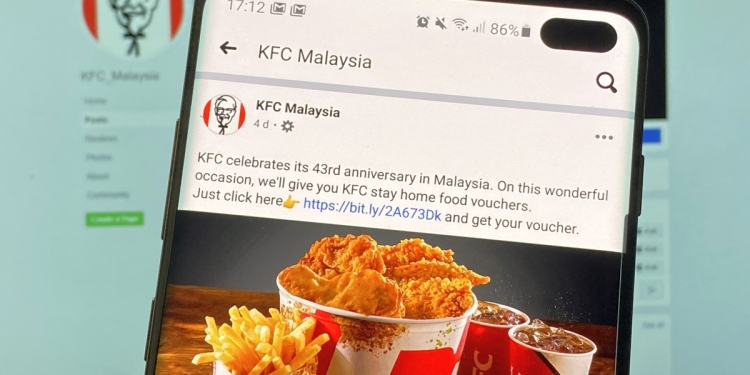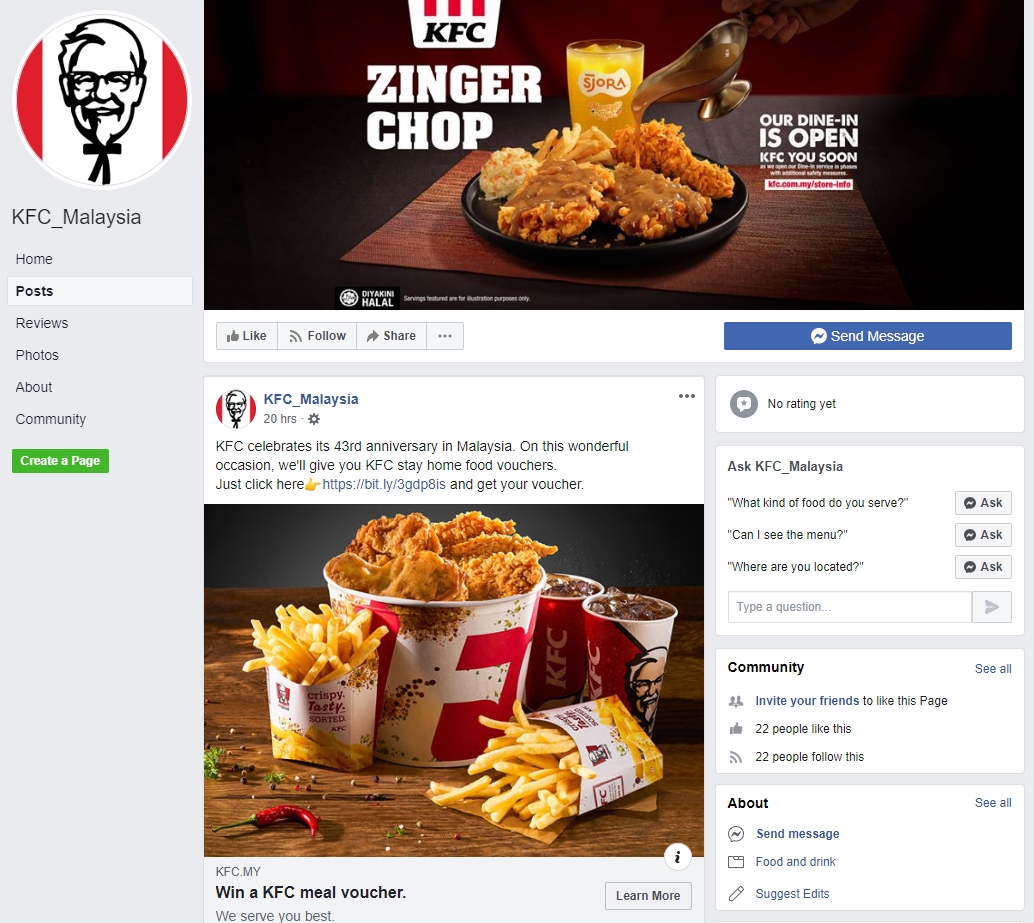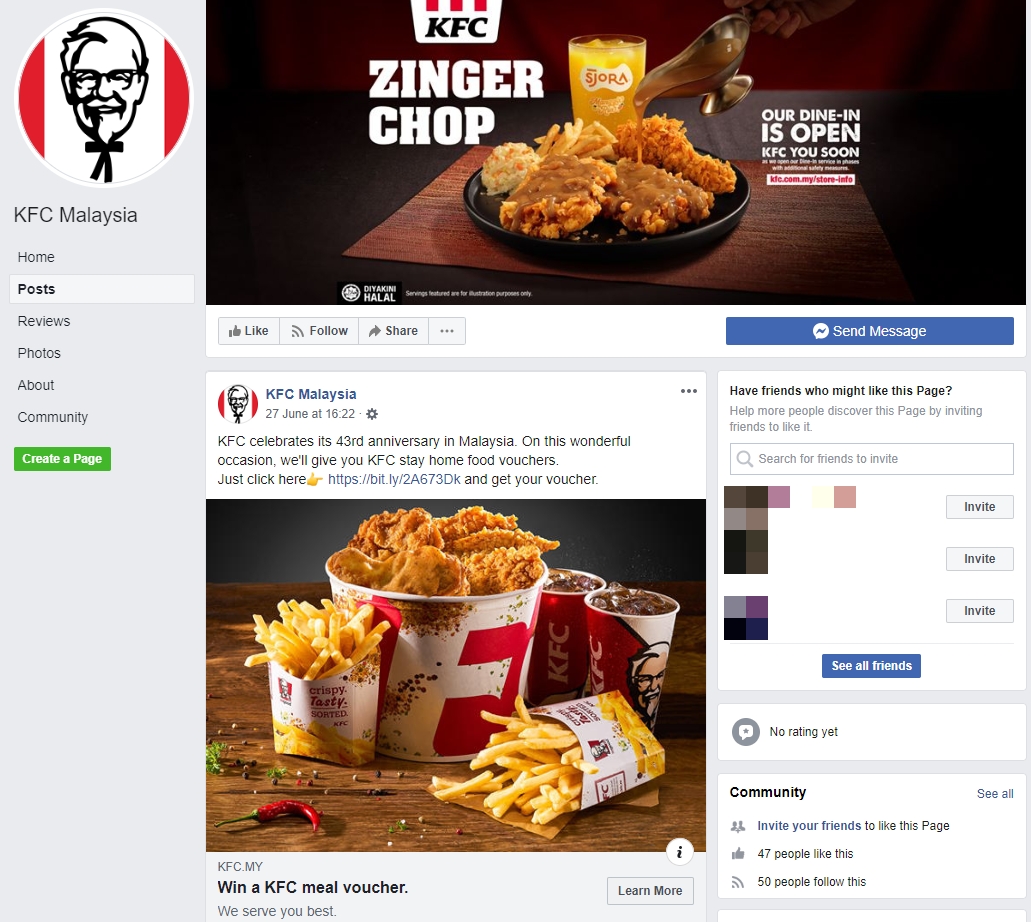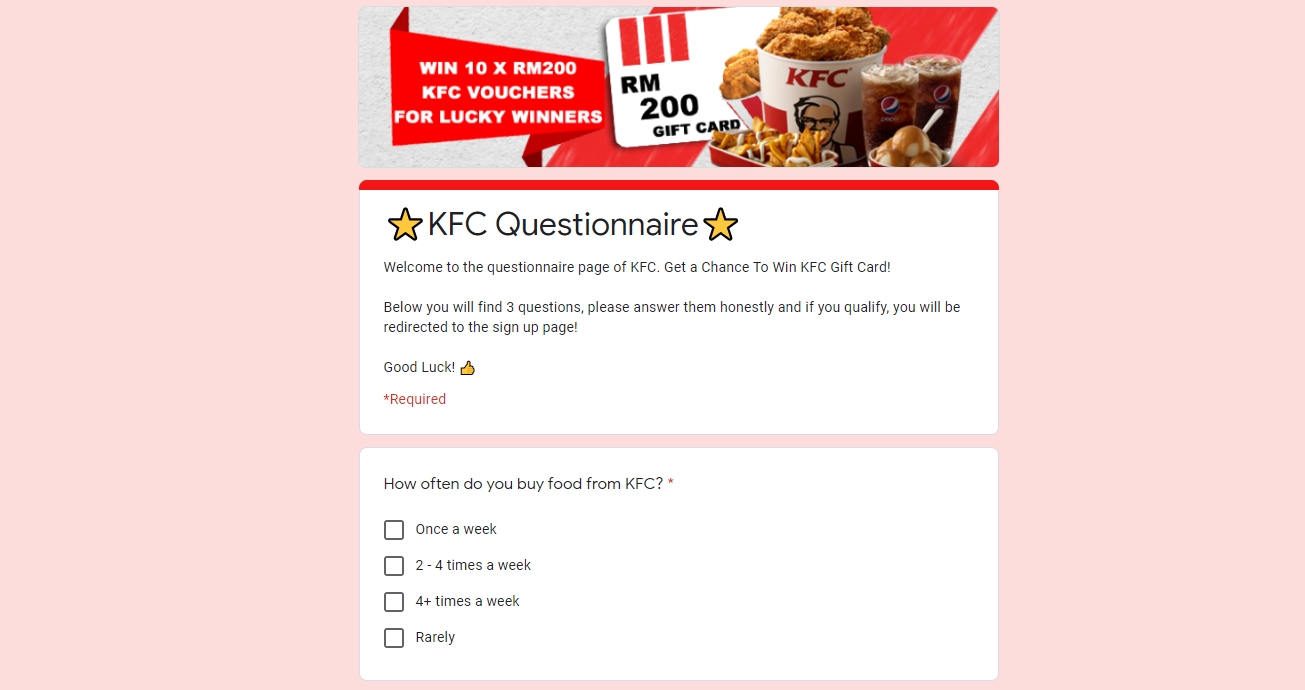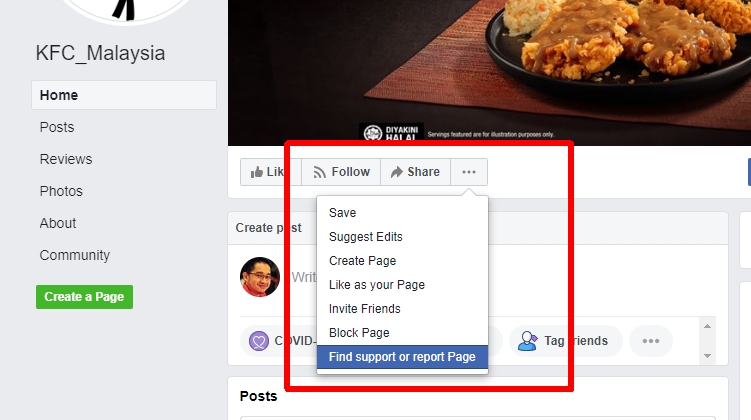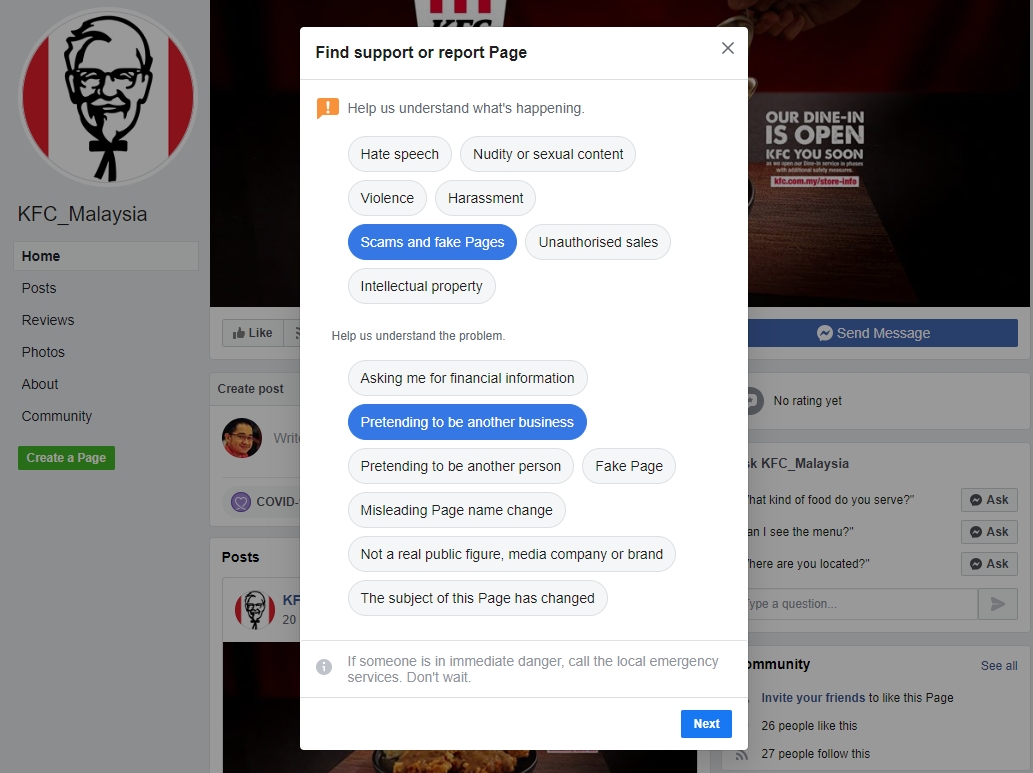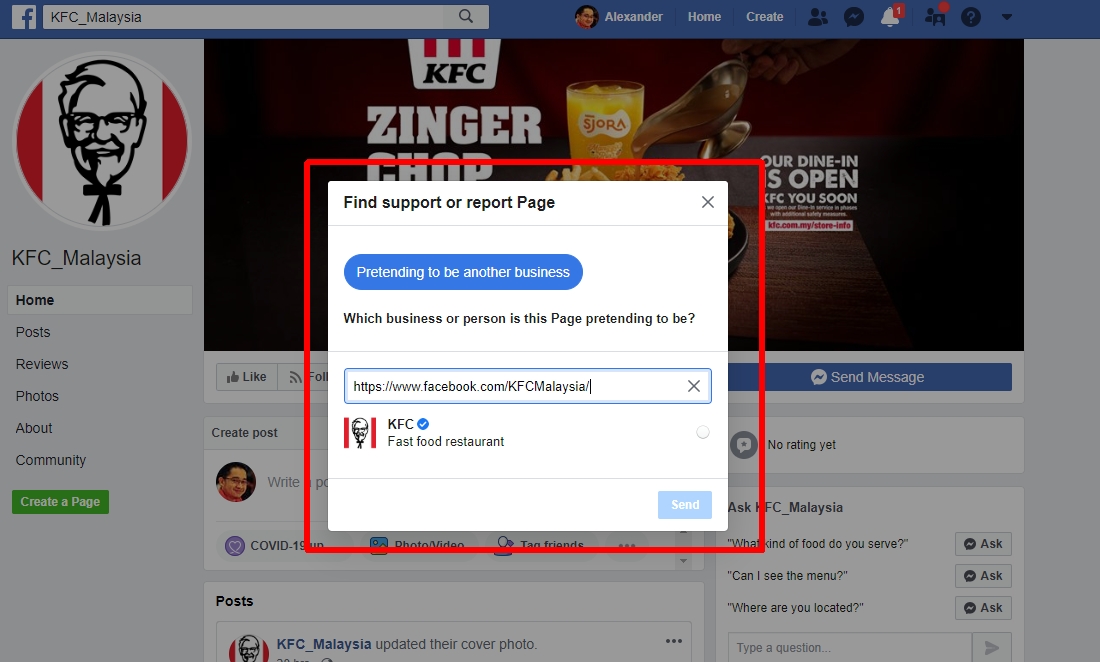KFC is one of Malaysia’s favourite fast-food chains but if you see an irresistible ad on Facebook, you have to be extra careful. It appears there are a number of fake Facebook pages being promoted on Facebook recently and they won’t be giving you any finger-licking good.
The tactic is the same across the different pages that use “KFC Malaysia” as the Facebook page name. In the advertised post, it says KFC is celebrating its 43rd anniversary and they are giving free “KFC stay home food vouchers” if you fill up a questionnaire.
Long story short, these pages are fake and they often have less than 50 likes on the page. As a comparison, the official page currently has over 55 million likes which include likes from other countries. To make it extra convincing, it uses the same profile and cover photo as the genuine KFC Malaysia page.
After completing the supposed questionnaire, you’ll be directed to a page where it will request for additional information such as your name, email and mobile number in exchange for KFC vouchers. These websites are obviously not managed by KFC and they are scam sites to collect personal information for possible scam activities or unsolicited marketing.
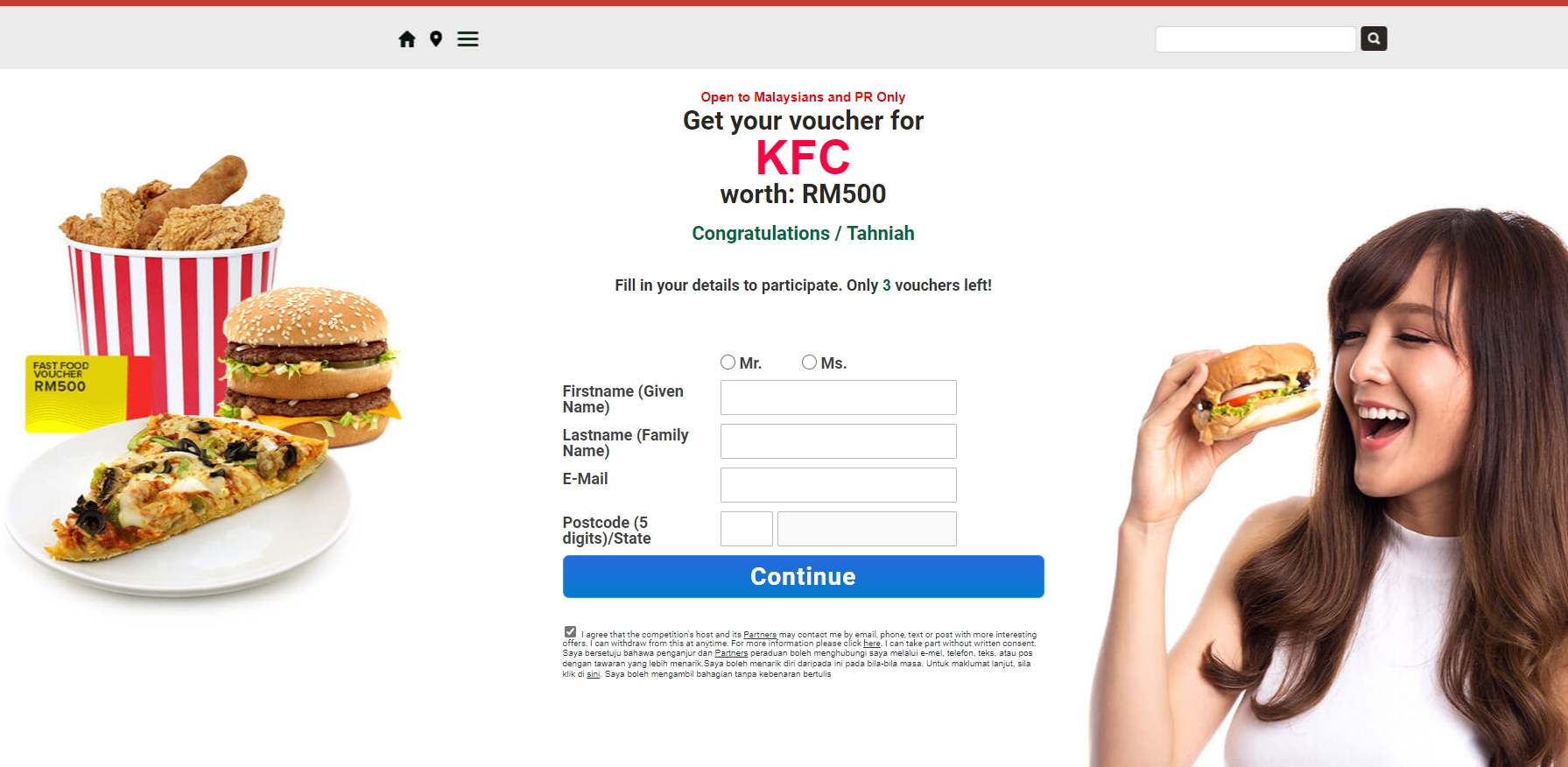
How to report fake Facebook pages?
If you come across any fake KFC ads or pages, you can file a report to Facebook in just a couple of steps. Go to the page and tap on the three dot button, then tap on “Find support or report Page”. Then select “Scams and fake Pages”, followed by “Pretending to be another business”. To complete the report, you can enter the URL of the genuine Facebook page.
I’ve personally submitted a report on Sunday and surprisingly, the page has not been taken down yet. The fact that Facebook approved the ads without verifying the page is disturbing and this could lead to more unsuspecting victims to provide their personal details.
Facebook has been accused of inciting violence and not doing enough to curb the spread of misinformation. The social network had promised to clamp down on scammers and bogus accounts but obviously it isn’t effective.
Recently, there’s a campaign called “Stop Hate for Profit” which calls for large corporations to stop advertising on Facebook to pressure them into taking drastic steps to change the situation. Several global brands including Coca-Cola, Unilever, Microsoft, Honda, Adidas and Starbucks have committed to pausing their advertising spending on their platform starting in July.

